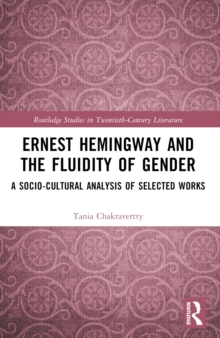
Duree as Einstein-in-the-Heart : Mary Butts and Virginia Woolf PDF
by Candice Lee Kent
Part of the Routledge Studies in Twentieth-Century Literature series
Description
Duree as Einstein-in-the-Heart traces the trajectory of modernist interaction with Bergson and Einstein through the works of Virginia Woolf (1882-1941) and Mary Butts (1890-1937). It presents an overview of critical approaches that focus on time in Woolf's novels, and that foreground Bergson in their analyses of Woolf. It then examines how Woolf's formal experimentation, and theorisation of time, in Jacob's Room (1922) and Mrs Dalloway (1925) relates to Bergson's temporal theories. This is followed by a discussion on the role Bergson's thinking played in the early formulation of Butts's ideas of time, and an analysis of how Bergson's ideas emerge in the short story 'Angele au Couvent' (1923), concluding by highlighting points of contrast in the engagements of Woolf and Butts. The book then documents the growth of Butts's interest in Einstein's ideas and shows how she amalgamates these with Bergson's thinking in her journals and in the most intense of her fictional engagement with Einstein's ideas, the novel Death of Felicity Taverner (1932). It discusses Butts's responses to the popular science genre and examines the important role played by J. W. N. Sullivan and Arthur Eddington in the development of her understanding, and interpretation, of physics. It concludes with a discussion of Butts's antisemitic characterisation of Kralin, as purveyor of corrupted science, in contrast with the Taverners, who are conscious of duree and delight in the abstractions of scientific truth.
Information
-
Download - Immediately Available
- Format:PDF
- Pages:142 pages
- Publisher:Taylor & Francis
- Publication Date:29/03/2024
- Category:
- ISBN:9781003860648
Other Formats
- Hardback from £130.00
- EPUB from £31.58
Information
-
Download - Immediately Available
- Format:PDF
- Pages:142 pages
- Publisher:Taylor & Francis
- Publication Date:29/03/2024
- Category:
- ISBN:9781003860648










